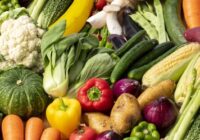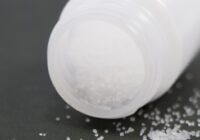Newsletter
Columns on Food Labeling/Regulations in Japan
Category: Labeling Claims
Key points to keep in mind when Making Environmental Claims on Food Labeling in the United Kingdom
In July 2024, the UK’s Advertising Standards Authority (Below we refer to it as the ASA) published “Environmental claims in food advertising,” which provides advice on making environmental claims on meat, dairy, and plant-based food labeling. The following is a brief overview of the advice. A recent consumer survey conducted by ASA on environmental claims… more »
Label Claims and Import/Export (Japan)
The transitional period of the guideline of additive labeling for use of ‘non-use’ (March, 2022)*1 ended at the end of March, 2024. During this period, there’s been a gradual change observed in the labeling of food products in stores in terms of changes made in accordance with the content of these guidelines. This article summarizes practical… more »
FSANZ published a draft food regulatory (Australia/New Zealand)Measure for Carbohydrate and sugar claims on alcoholic beverages
On the 24th July, 2023, Food Standards Australia New Zealand (FSANZ) called for public comment to clarify requirements with respect to carbohydrate and sugar claims on alcoholic beverages. Standard 1.2.7 in the Food Standards Code currently permits voluntary claims about carbohydrate content in alcoholic beverages. However, the Code lacks clarity around the extent of these… more »
Report on mandatory allergen labeling for walnut: The period of transitional measures is until March 31, 2025 (Japan) ~Summary on other future revisions and transitional measures~
On December 13, 2022, a report was submitted in response to a proposal for partial revision of Food Labeling Standards (such as mandatory allergen labeling for walnuts). According to the report, the transitional period from recommended to mandatory allergen labeling for walnuts is March 31, 2025. The partial revision is expected to be promulgated and… more »
Japan’s System for the Operation of Geographical Indication Protection reviewed
The Geographical Indication (GI) Protection System is a system to protect names of products with properties such as quality and social reputation, and so on that have been nurtured by natural, human, and social factors and environments unique to the region as regional intellectual property. The system has already been introduced in more than 100… more »
Importance of Guidelines related to the Act against Unjustifiable Premiums and Misleading Representations (Japan)
This month, we will take up the topic on the page of “Guidelines related to the Act against Unjustifiable Premiums and Misleading Representations” (the Consumer Affairs Agency) for business operators handling foods to check it again. I hope this will be good opportunity to remind people of the importance of “Misleading representations” under the Act… more »
Japanese Agricultural Standards (JAS) for “Processed Food Suitable for Vegetarians or Vegans” established (JAPAN)
On September 6, 2022, the Japanese Agricultural Standards (JAS) for processed foods suitable for vegetarians or vegans was established. It was added to the JAS list on the website of the Ministry of Agriculture, Forestry and Fisheries on the same day, and we would like to summarize the outline and key points for labeling below.… more »
Inviting comments started about the partial revision(draft) “Matters to be Noted relating to Health Foods under the Act against Unjustifiable Premiums and Misleading Representations and the Health Promotion Act” (Japan)
On August 9, 2022, the Consumer Affairs Agency(CAA) prepared and announced a partial revision (draft) of “Matters to be Noted relating to Health Foods under the Act against Unjustifiable Premiums and Misleading Representations and the Health Promotion Act”. From the same day until September 7, comments were invited through public comments. The purpose of the… more »
Educational leaflets and posters “the guideline of additive labeling for use of ‘non-use'” released (Japan)
In June, the Consumer Affairs Agency (CAA) has released educational leaflets and posters on “the guideline of additive labeling for use of ‘non-use’”on its website. In addition, “illustrations of 10 type items” are also posted on the website and I would like to focus on these in this column. The leaflets and posters were published… more »
Comments invited comments about guideline draft of additive labeling for use of “non-use” (Japan)
The Consumer Affairs Agency started to invite comments (public comments) on “the guideline draft of additive labeling for use of ‘non-use’”on December 22, 2021. Since there are some changes in “Type items (draft) of non-use labeling of food additives that may cause misunderstandings” (discussion about the guideline of additive labeling for use of non-use) announced… more »










